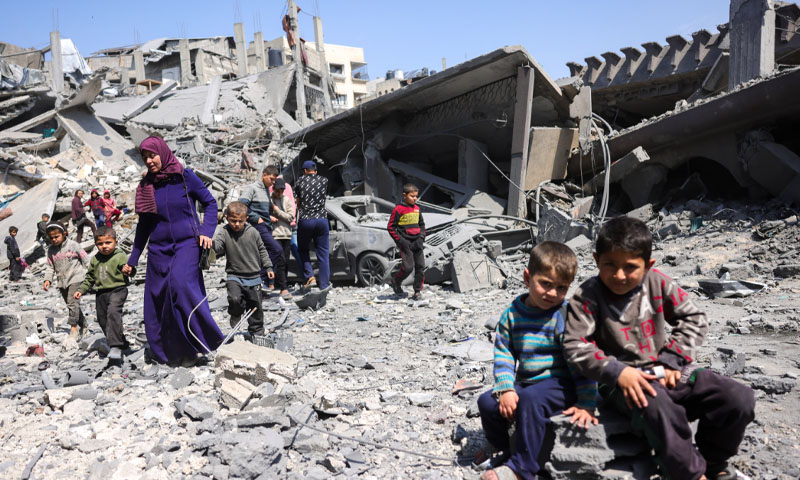- Web Desk
- Yesterday
Will Pakistan and the Taliban choose dialogue over distrust?
As the Taliban governor of Kandahar province of Afghanistan lands in Islamabad, hopes for rapprochement between the two sides is witnessing a spark after a consistently fragile period. Deep-seated mistrust, historical grievances, and the persistent threat of cross-border terrorism cast long shadows on the path to normalisation.
My recent visit to Kabul and conversations with Taliban officials, activists, and journalists revealed the depth of distrust between the two nations. Pakistan grapples with concerns about anti-state militant groups, such as Tehreek-e-Taliban Pakistan, operating from Afghan soil. At the same time, the Taliban struggles with the regional branch of the Islamic State, known as ISKP, within its borders. These narratives highlight deep-seated anxieties and unaddressed issues that must be tackled for meaningful progress.
While such high-profile visits hold symbolic weight, they are merely the first step. Akhund’s close ties to Taliban leader Haibatullah Akhundzada add significance, but the lack of official confirmation underscores the cautious approach both sides are taking.
Similarly, Jamiat-e-Ulema Islam chief Maulana Fazlur Rahman’s potential Kabul journey reflects the complex regional dynamics. His party’s ties to the Taliban, coupled with ISKP attacks targeting them in Pakistan, illustrate the interconnectedness of the situation.
Several factors fuel the current tension. Firstly, the TTP’s presence in Afghanistan, stoking anxieties and undermining trust. The surge in attacks by the TTP and its affiliates, such as Tehreek-e-Jihad Pakistan, targeting Pakistani security forces showcases this threat. The Centre for Research and Security Studies, an Islamabad-based think tank, observed a surge in violence in 2023 for the third consecutive year with nearly 1000 fatalities among civilians and security forces personnel. The escalation has been observed annually since 2021 when the Taliban seized control of Afghanistan.
The Taliban’s inability or unwillingness to tackle the TTP effectively creates friction with Islamabad. Pakistan’s move to expel irregular Afghans within its borders adds complexity. Viewed as an internal measure by Islamabad, the Taliban sees it as a pressure tactic, further straining the relationship.
Secondly, the ISKP’s presence in both countries casts a dark shadow. The group, genuinely viewed by the Taliban as a major threat, seeks to exploit tensions between Islamabad and Kabul. They aim to destabilise the Taliban regime and target international interests, such as China and Russia, close to it, hindering its quest for recognition. However, the Taliban’s tendency to blame Islamabad for supporting ISKP, using it as a tit-for-tat measure, further complicates the situation. This approach, as evidenced by Defence Minister Yaqoob’s recent statement, risks fuelling distrust and hindering progress.
It is crucial for both sides to understand that the tense situation benefits militant groups like the TTP and ISKP.
Islamabad needs to recognise the Taliban’s internal complexities. Different factions within the Taliban hold varying degrees of influence and may have differing priorities, such as supporting cross-border Jihadi groups and allowing girls’ education, complicating the negotiation process. As one Taliban official in Kabul rightly pointed out, forceful action against the TTP at Pakistan’s behest could trigger an internal revolt inside the Taliban or the TTP’s merger with ISKP, ultimately harming both countries.
The Taliban administration, on the other hand, should acknowledge that ISKP originated from disgruntled TTP fighters in 2015 and has created security challenges for both countries.
To mend ties between the two countries, a multifaceted approach is crucial. This involves a robust crackdown on militant groups through intelligence sharing and joint operations, regular dialogue at all levels, addressing cross-border concerns by tackling TTP hideouts and ISKP threats collaboratively, recognising diverse stakeholders within the Taliban, and seeking regional and international support for a comprehensive peace process.






